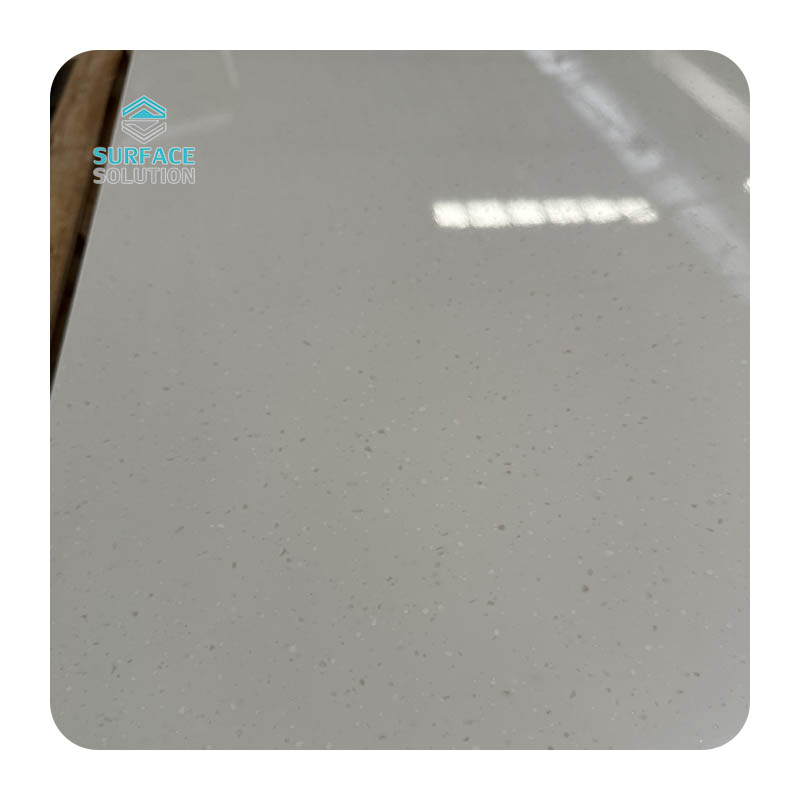
How To Repair Acrylic Solid Surface Countertops A DIY Guide

How to Repair Acrylic Solid Surface Countertops: A DIY Guide
Acrylic solid surface countertops are prized for their durability and seamless appearance, but even the toughest materials can sustain scratches, burns, or stains over time. The good news? Many common damages can be repaired at home with minimal tools. Here’s how to restore your countertop to its original glory.
Tools You’ll Need
· Fine-grit sandpaper (220 to 400 grit)
· Medium-grit sandpaper (120 to 150 grit)
· Acrylic repair kit (color-matched resin and hardener)
· Soft cloths or microfiber towels
· Mild dish soap and water
· Heat gun or hair dryer (optional)
· Protective gloves and goggles
Step 1: Assess the Damage
Identify the type and severity of the damage:
· Light Scratches: Surface-level marks that don’t penetrate deeply.
· Stains: Discoloration from spills like coffee or wine.
· Burns: Discolored or melted spots from hot pans.
· Gouges/Chips: Deep cuts or missing material.
Step 2: Repairing Light Scratches
00001. Clean the area with soapy water and dry thoroughly.
00002. Use 400-grit sandpaper to gently buff the scratch in a circular motion.
00003. Wipe away dust and switch to 600-grit sandpaper to polish the surface.
00004. Apply a countertop polish (or toothpaste as a quick fix) to restore shine.
Step 3: Removing Stains
Acrylic is non-porous, but stubborn stains can sometimes linger:
00001. Mix baking soda and water into a paste.
00002. Apply the paste to the stain, let it sit for 10 minutes, then scrub with a soft cloth.
00003. For tougher stains, use a non-abrasive cleaner and rinse thoroughly.
Step 4: Fixing Burns or Discoloration
00001. Sand the burned area with 120-grit sandpaper to remove discolored layers.
00002. Gradually switch to finer grits (220, 400) to smooth the surface.
00003. If the burn is deep, fill it with color-matched acrylic resin (from a repair kit).
00004. Let the resin cure for 24 hours, then sand and polish to blend with the surrounding area.
Step 5: Repairing Gouges or Chips
00001. Clean the damaged area and let it dry.
00002. Mix the resin and hardener from the repair kit according to instructions.
00003. Fill the chip or gouge slightly above the surface to account for shrinkage.
00004. Use a heat gun on low setting to remove air bubbles (optional).
00005. After 24 hours, sand the area smooth, starting with 150-grit and progressing to 600-grit.
00006. Polish to match the original finish.
Prevention Tips
· Use trivets for hot cookware.
· Avoid cutting directly on the surface.
· Clean spills promptly to prevent stains.
When to Call a Professional
For large cracks, structural damage, or color-matching challenges, consult a certified solid surface technician. They have specialized tools and materials for flawless repairs.
Final Thoughts
With patience and the right tools, minor acrylic countertop repairs are manageable DIY projects. Regular maintenance and prompt attention to damage will keep your surface looking pristine for years.
Related Blogs
-
 The Impact of Solid Surface Counters on Home Resale ValueIn the competitive US residential real estate market, kitchen and bathroom renovations are proven to be the most impactful upgrades for boosting home resale value. Among all renovation elements, countertop materials take center stage—and solid
The Impact of Solid Surface Counters on Home Resale ValueIn the competitive US residential real estate market, kitchen and bathroom renovations are proven to be the most impactful upgrades for boosting home resale value. Among all renovation elements, countertop materials take center stage—and solid -
 Understanding the composition of this material is the first step in answering the question: what is solid surface countertops? Unlike natural stone, which is mined directly from the earth, solid surface is a man-made material. It is engineered primarily from a combination of alumina trihydrate (ATH)
Understanding the composition of this material is the first step in answering the question: what is solid surface countertops? Unlike natural stone, which is mined directly from the earth, solid surface is a man-made material. It is engineered primarily from a combination of alumina trihydrate (ATH) -
 Pairing Wall Colors with Your Solid Surface CounterSolid surface counters are celebrated for their versatility—offering a spectrum of hues, textures, and finishes that anchor kitchen and bathroom design. Yet, their impact is incomplete without complementary wall colors, which tie the space together,
Pairing Wall Colors with Your Solid Surface CounterSolid surface counters are celebrated for their versatility—offering a spectrum of hues, textures, and finishes that anchor kitchen and bathroom design. Yet, their impact is incomplete without complementary wall colors, which tie the space together,













